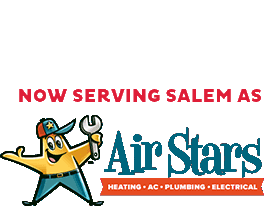Air conditioners are designed to keep indoor air cool. They also contribute to fresh, clean air, but this requires the use of an air filter. The air filter is the simplest part of an air conditioning system—but is extremely important. It keeps contaminants out of the air you breathe and out of sensitive AC components that can be damaged by accumulated debris.
HVAC filters can capture human hair, fine sand, and even particles too small to see. Dust, pollen, and combustion particles and those from fumes are just a few microns in size, but can dramatically affect indoor air quality and human health. Air filters for HVAC systems are rated with a minimum efficiency reporting value (MERV) in a range from one to 20 (the higher the number, the more efficient the filter). Residential filters generally range up to 16, meaning they can capture not only pollen, dust mites, and microbes, but also tobacco smoke and sneeze particles.
Different Types of AC Filters
The type of filter you choose is just as important. All AC filters serve the same purpose, but some are more effective in certain applications than others. These are the most common types of air conditioner filters:
- Fiberglass Filters: Have a flat-paneled design with a fiberglass filtering media. The cheapest type of air filter, it typically filters out only the largest of particles, such as heavy dust, pet hair, and carpet fibers. It’s generally not effective for relieving respiratory problems.
- Pleated Filters: Are made of polyester fabric or folds of cotton. The more pleats a filter has, the better it is at filtration. MERV ratings are typically higher than fiberglass filters. HVAC contractors often recommend them because of the balance of cost vs. efficiency. Washable or disposable types are available. One downside is a pleated filter is denser and can cause an A/C system to work harder, reducing efficiency.
- Electrostatic Filters: A static charge, generated by small cotton and paper fibers, attracts very small airborne particles. Disposable and washable filters remove a wide range of allergens. Particles are attracted with a magnet-like effect, so they don’t contaminate indoor air. Electrostatic filters are more expensive than fiberglass or pleated types.
- HEPA Filters: A High-Efficiency Particulate Air (HEPA) filter can capture particles down to 0.3 microns, according to the Environmental Protection Agency (EPA). To put that into perspective, the filter is efficient enough to capture bacteria. HEPA filters can also impede airflow and are therefore recommended only for installations where air quality is of utmost importance. If you’re prone to respiratory difficulties, these filters are a good choice, but it’s important not to install one rated higher than the AC manufacturer recommends.
- UV Filters: Contain ultraviolet lights that kill viruses and bacteria. While effective at killing microorganisms, UV filters don’t filter dust and other pollutants as well.
Disposable vs. Washable
Disposable filters are designed to work for a certain amount of time and then be thrown away. They cost less to purchase and are easy to replace. If you’re willing to invest more, washable, or reusable, filters are an option that will save you in the long run. Plan on cleaning in advance so there’s enough time to let the filter dry, so bacteria and mold don’t grow.
Contact Sky Heating & Air Conditioning
We are an AC and heating company based in the Portland, OR, area. Providing HVAC services since 1979, our trained, experienced technicians can help choose the right air conditioning filter for your home or business. Learn more by reaching out online or calling 503-235-9083.

